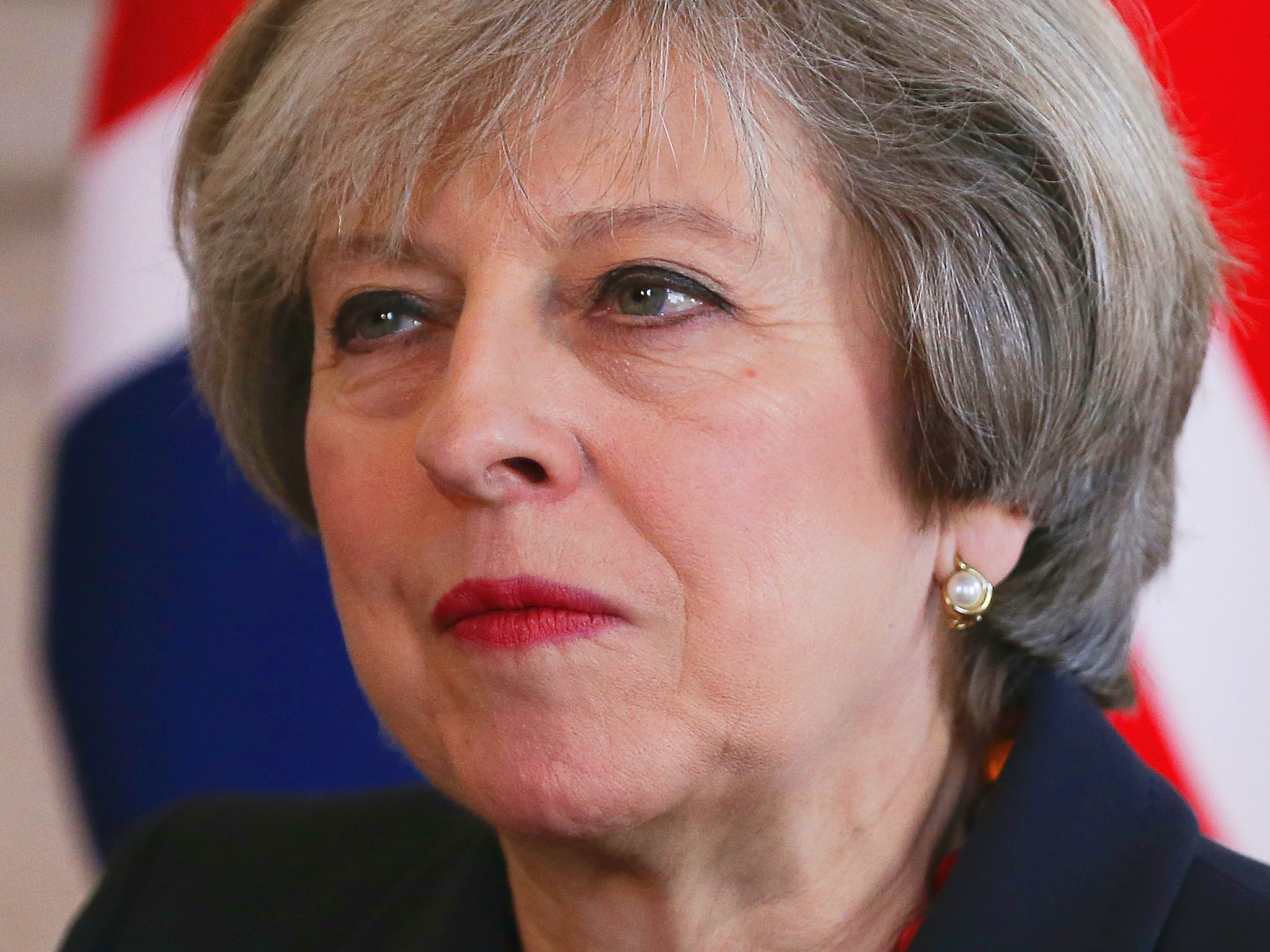Theresa May must not use ‘Henry VIII powers’ to make post-Brexit laws behind Parliament’s back, report warns
A House of Lords committee has raised the alarm over a potential No 10 power grab when the ‘Great Repeal Bill’ is put before Parliament later this year

Your support helps us to tell the story
From reproductive rights to climate change to Big Tech, The Independent is on the ground when the story is developing. Whether it's investigating the financials of Elon Musk's pro-Trump PAC or producing our latest documentary, 'The A Word', which shines a light on the American women fighting for reproductive rights, we know how important it is to parse out the facts from the messaging.
At such a critical moment in US history, we need reporters on the ground. Your donation allows us to keep sending journalists to speak to both sides of the story.
The Independent is trusted by Americans across the entire political spectrum. And unlike many other quality news outlets, we choose not to lock Americans out of our reporting and analysis with paywalls. We believe quality journalism should be available to everyone, paid for by those who can afford it.
Your support makes all the difference.New measures to prevent Theresa May using ancient “Henry VIII powers” to make post-Brexit laws behind Parliament’s back have been demanded in a report today.
The Prime Minister must not be allowed to put through crucial legislation – over trade, immigration and workers’ rights, for example – using so-called delegated powers, a House of Lords committee said.
The alarm has been raised over the potential for a No 10 power grab when the daunting “Great Repeal Bill” is put before Parliament later this year, after Article 50 has been triggered.
The bill will convert EU law into UK law before Brexit is completed in 2019, and before the Government proposes which bits should be retained or junked.
Now the Lords Constitution Committee has urged MPs and peers to impose two vital safeguards to limit future prime ministerial power, by:
* Restricting the use of delegated powers to where they are truly needed to adapt EU law to UK law and to implement the Brexit negotiations.
* Forcing ministers to sign a declaration on every occasion that each use “does no more than necessary to translate EU law into UK law”.
The committee’s chairman, the former Conservative cabinet minister Lord Lang, said the huge task of converting EU law made some extra government powers inevitable.
But he said: “Those powers should not, however, be used to pick and choose which elements of EU law to keep or replace – that should be done only through primary legislation that is subject to proper Parliamentary scrutiny.
“Scrutiny must not be sidelined. There must be a clear limit on what the delegated powers in the bill can be used to achieve.”
The warning was echoed by Dominic Grieve, the former Tory Attorney General, who said: “There must be no question of the Government creating statutory instrument powers in the ‘Great Repeal Bill’ to change the law at will.”
The most draconian of these powers – allowing laws to be amended or repealed – have been dubbed “Henry VIII powers” because they date back to a 1539 law allowing the Tudor monarch to govern by proclamation.
The Prime Minister claimed the right to use that power to trigger Article 50 – until the Supreme Court ordered her not to bypass Parliament.
Ministers have promised separate legislation “in areas such as customs and immigration”, where significant policy changes will be made.
Today’s report warned those areas are likely to be “carved out of the Great Repeal Bill” and may have to be adapted to fit with an exit deal agreed in haste in 2018 or 2019.
Another obvious area where ministers may seek to claim delegated powers is workers’ rights, such as limits on hours under the EU’s working time directive.
The Prime Minister has vowed workers’ rights will be protected – but has declined to say whether or how that will be enshrined in law.
The Lords Constitution Committee said Parliament should consider imposing “sunset clauses” to ensure EU laws can be amended “rather than being left to drift into permanence”.
“These measures should ensure that the cry of the Brexit campaign in the referendum, that the UK Parliament should ‘take back control’, isn’t lost before the UK has even left the EU,” Lord Lang added.
Join our commenting forum
Join thought-provoking conversations, follow other Independent readers and see their replies
Comments